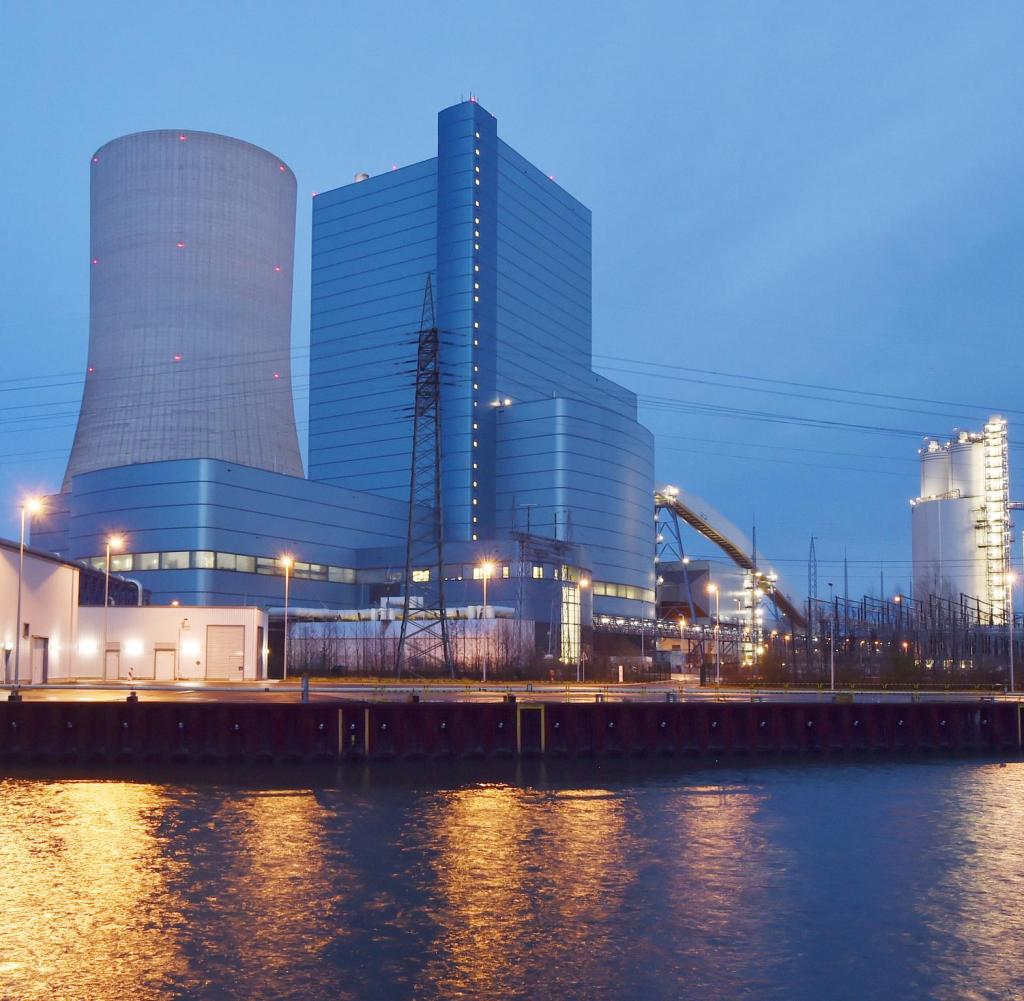Germany Brings Last New Coal Plant Online
What is expected to be the last new coal plant to come online in Germany entered commercial operation on May 30, more than a decade after it was first planned.
The 1,100-MW Datteln 4 power plant, owned by Uniper and located in Datteln in the North Rhine-Westphalia region, opened despite the German government’s stated plan to end coal-fired power generation in the country. The government last year said it would close all 84 of its coal-fired power plants by 2038 as the country moves toward cleaner sources of electricity.
At least eight German coal-fired plants are scheduled to be closed this year. Officials in the North Rhine-Westphalia region had said they would move forward with Datteln 4 because its environmental impact would be offset by the closure of four other coal plants in the region.
The German government and regional officials last year agreed on a compensation plan for the coal industry of about €40 billion ($45 billion). The government has said the money will be used to finance “socially responsible solutions” for workers, including new jobs, new infrastructure projects, and likely providing compensation to affected companies.

Government data shows about 20,000 people have been working in Germany’s lignite (brown) coal industry, with about 15,000 in the mining industry, and with about 5,000 employed at lignite-fueled power plants. By comparison, the country has more than 250,000 workers in renewable energy sectors. Germany closed the last of the country’s black coal mines in 2018. Black coal is a higher-ranked coal than lignite, which is considered the lowest-grade coal due to its low carbon content.
At the height of the country’s coal industry, in 1957, Germany produced 150 million tonnes of black coal and employed 607,000 miners.
The €40 billion compensation is earmarked for German states that have lignite mines and coal-fired power plants: Saxony-Anhalt, Saxony, North Rhine-Westphalia, and Brandenburg. The country at present receives about one-third of its power from coal-fired units; more than half of those burn lignite. Germany has been the world’s biggest lignite producer.
Germany also is phasing out nuclear power, a plan put in motion after the Fukushima disaster in Japan in 2011. The country plans to decommission all its remaining nuclear plants by 2022. The country, which had 17 reactors in operation in 2011, has just seven still online.
Climate Activists Protest at Plant
German media reported that about 500 protesters gathered at the Datteln 4 plant at its opening Saturday, calling for its immediate closure. The groups included Greenpeace, Fridays for Future, Ende Gelände and the German Federation for Environment and Nature Conservation, known as BUND.
The groups put graffiti on the plant’s cooling tower, writing “Klimakrise (climate crisis), Made in Germany.”
Greta Thunberg, the Swedish environmental activist and founder of climate activist movement Fridays for Futures, tweeted that Saturday was “a shameful day for Europe.
EuroNews reported that about 150 former coal miners, who lost their jobs when the country began closing coal mines, were among the protesters. Datteln 4 will mostly burn coal imported from Russia and Colombia, according to EuroNews.
Fortum Responds to Concerns
Fortum Corp., the parent of Uniper, in a May 29 statement acknowledged concerns about the plant’s opening.
“The launch of the power plant has given rise to much debate, due to fears that the plant will increase emissions from electricity production in Germany. We understand people’s concerns and we agree that coal must be phased out and emissions must be reduced. However, the transition to a low-emission society must be made without compromising security of supply or an affordable cost of energy, in a socially just manner. This has been the starting point for the comprehensive solution of the German government, which allows the commissioning of Datteln 4 and systematic phasing out of coal by 2038.”
Fortum, a Finnish utility, acquired a majority stake in Uniper in late 2019. Fortum in its statement noted that “Uniper has announced that it will shut down all its old coal-fired power plants in Germany and the UK by 2025. The company aims for its electricity and heat production in Europe to be carbon-neutral in 2035. The German government is committed to reducing emissions quickly, so old and inefficient power plants will be decommissioned first. As long as coal is needed to ensure security of supply, it should be used as efficiently as possible.”
Fortum in its statement continued: “Our next step is to agree on a common strategy with Uniper and set ambitious climate targets that apply to all our operations. We understand that many would like us to make faster commitments and act in a more agile manner, but changes of this caliber must be implemented responsibly, taking all aspects into consideration. However, the direction is clear: a cleaner future. We promise to work diligently and continuously towards this goal.”
Construction of Datteln 4 began in November 2007. The plant, built at a cost of €1.5 billion ($1.7 billion), was designed to replace three older units at Datteln, and another unit at the nearby Shamrock (Herne) power plant. Datteln 4 was originally scheduled to open in 2011, but was delayed for years due to technical issues.
Datteln 4 was built with an advanced multi-step flue gas purification system, designed to eliminate nitrogen oxides, dust, and sulfur from the flue gas. Mitsubishi Hitachi Power Systems supplied the steam generator for the plant.
—Darrell Proctor is associate editor for POWER (@DarrellProctor1, @POWERmagazine).